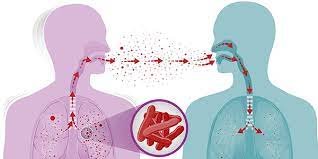Traditional healers and medical practitioners are a household name in the Khasi hills region. The umbrella term “Khasi traditional medicine” denotes the comprehensive wisdom, knowledge, skills and practices relating to Khasi traditional medicine. Our people rely on plants and traditional practices as a significant source of medicine and healthcare. This is made conducive as Khasi Hills is blessed with a rich biodiversity.
The varied altitude, topography, status of soil and climatic conditions of the region makes it possible for a rich and varied number of medicinal plants to thrive. The Khasi traditional medicine is distinguished and well known amongst the indigenous traditional medicines of the North Eastern states, the country and abroad. It has been hailed as a medical system which is accessible, affordable and efficacious.
Traditional healers of the region are called ‘Nong Ai Dawai Kynbat’ (herbal healers) and are well revered amongst the local population as providers of much needed medical aid for sundry ailments ranging from gastro-intestinal problems, minor infection to nerve and bone injuries among others. The popularity of the traditional medical practitioners amongst the people is its easy accessibility, cheapness and reliability.
Traditional medicine and traditional healing is an undocumented practice passed on orally by elders to the younger generation. Over the years, it is facing a serious threat of extinction as this knowledge is being eroded by studies of modern medicines and young people not taking interest in such knowledge. This is especially apparent in rural areas like the South West Khasi Hills where the majority of the practitioners lack information and are not systematically passing the knowledge through archiving, codifying, documentation, and patent. This has resulted in scrupulous entities taking undue advantage of the innocence and ignorance of these practitioners.
In the name of research, studies are being conducted by Research Scholars (both local and non-local) on the practice of traditional healing. Influential pharmaceutical companies use such Research Scholars to conduct studies on traditional medicines and utilise the knowledge gained to further their own products. These Research Scholars are also paid meager amounts for their research.
These traditional practitioners are being enticed by short-term gains while they are made to share their vast knowledge in their fields unknowingly. Hence, many benefits including financial incentives and recognition from such studies do not reach the custodian and stakeholders of the traditional medical knowledge.
In light of this, it is of chief importance to formulate means of retaining and sustaining this valuable knowledge. One of the ways of achieving this is by discouraging any form of arbitrary research that aims to pilferage this knowledge for profit or other ulterior motives without giving the due credit to the custodians and stakeholders of this traditional knowledge who, in this case, are the practitioners and healers. There is also a need to teach our practitioners to properly verify the identity of these Research Scholars to ensure that they are not agents representing pharmaceutical companies or other unscrupulous entities.
On the other hand, it is important to recognise that research and study is a very important way of promoting and making traditional knowledge more accessible. Hence, any research or study in this field should be carried out with strict compliance to all research ethics. Prior Informed Consent (PIC), a very important aspect of research, should be attained from all participants after a thorough elucidating of the objectives and possible outcomes of the research or study.
Further, the medical biodiversity of the region also needs protection and this can be achieved by the declaration of protected sanctuaries with regulated or restricted access, formulation of a database of medicinal plants, besides others. The ‘Khasi Traditional Medical Knowledge Rights’ under the Khasi Hills Autonomous District (Protection and Promotion of Khasi Traditional Medicine) Act 2011 passed by the KHADC should also be put into effect stringently and the ‘Rights’ system be made to encompass any new development or findings in the field of traditional medicine.
Our traditional practitioners lack proper recognition and rely only on word-of-mouth advocacy that severely restricts their exposure and limits the scope of their functioning, efficacy, and especially their impact. The next more important step is to educate and generate awareness amongst the traditional practitioners about the various ways and means that they can safeguard the knowledge that is rightfully theirs through approaches and procedures that are protected under the purview of the law.


























